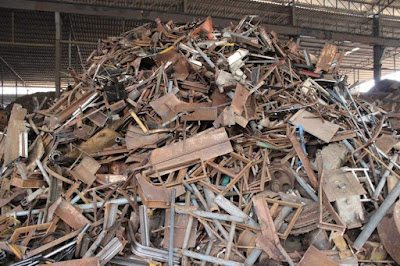China Scrap Imports Decline After Tariffs On US Shipments: All the Stats, Facts, and Data You'll Ever Need to Know
- Rubicon Global, Atlanta, a provider of waste, recycling and smart city solutions to businesses and governments, plans to add smart city and sustainability expertise to both its board of directors and its advisory board.
- Former Indianapolis Mayor Stephen Goldsmith joined Rubicon’s board of directors and former Philadelphia Mayor Michael Nutter joined Rubicon’s advisory board. Both roles are effective immediately.
- According to a Rubicon news release, the former mayors will work with the company’s executive leadership team in advisory roles, specifically around technology adoption and the growth of Rubicon’s smart city offering.
- The company says its RUBICONSmartCity platform provides waste, recycling and community infrastructure data that enables cities to reduce operating expenses, divert waste from landfills, implement and improve recycling programs, track metrics and work toward long-term sustainability goals.
- Nate Morris, Rubicon Global’s chairman and CEO, says in a company news release that both Goldsmith and Nutter are thought leaders who will bring the company a “wealth of smart city and sustainability experience” from the city and municipality point of view.
- “Governments today are integrating data and technology to drive efficiency and respond more effectively to citizen demands around waste, recycling and quality of life issues.
- RUBICONSmartCity allows city managers, department heads, IT directors and elected officials to use the power of data to make better decisions that dramatically improve the waste and recycling results for their municipalities and its citizens,” says Michael Allegretti, chief public strategy officer for Rubicon.
- “The industry experience and knowledge that [former] Mayor Goldsmith and [former] Mayor Nutter will bring to the Rubicon family is unprecedented in the world of smart city and sustainability, and we are honored to have them join with us on our company mission to end waste.”
- Goldsmith served as the 46th mayor of Indianapolis from 1992 to 2000, serving two terms for a city of nearly 1 million people.
- Goldsmith has written nearly a dozen books and chapters on issues related to data-driven government and making technology work better, faster and cheaper in the municipal world.
- Smart city and sustainability have been recurring elements across Goldsmith’s career, focusing on the benefits of public-private partnerships and managed competition, including serving as Deputy Mayor of New York City, with a special focus on operations. Goldsmith is currently the Daniel Paul professor of the practice of government and the director of the innovations in the American Government Program at Harvard’s Kennedy School of Government.
- Former Mayor Michael Nutter was the 98th mayor of Philadelphia.
- Issues related to the environment and sustainable development were a cornerstone of the former mayor’s administration where he created the Mayor’s Office of Sustainability during his first term, and led the development of the city’s comprehensive sustainability plan, Greenworks Philadelphia.
- Nutter’s recent book, “Mayor: The Best Job in Politics” dives into the collaboration and achievements that can be earned between a mayor and its citizens.
- Currently, Nutter serves in multiple roles around government and civic life including respected roles as senior advisor at Dentons US LLP Public Policy group and a member of its Local Government Solutions team, senior advisor for the Bloomberg Philanthropies What Works Cities program and the David N.
- Dinkins professor of professional practice in urban and public affairs at the Columbia School of International and Public Affairs.
- “We only have one planet so we need to be sure that we take active roles in promoting sensible environmental policy and drive more sustainable outcomes as future generations will inherit our challenges,” Nutter says. “To be a part of the advisory board and talk about how waste, recycling and sustainability challenges can be solved in cities large and small through technology is a fantastic opportunity.”

Comments
Post a Comment